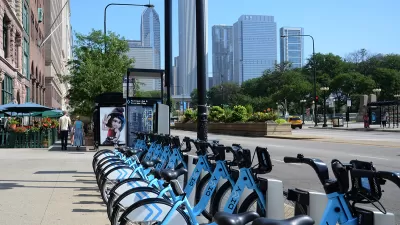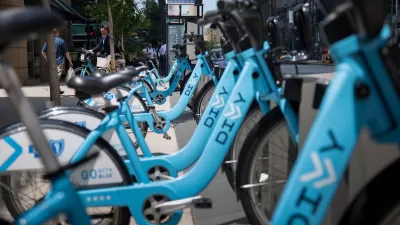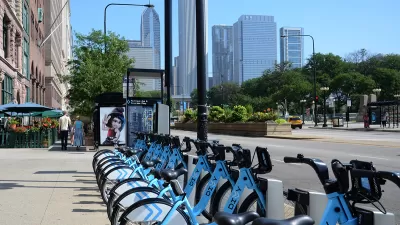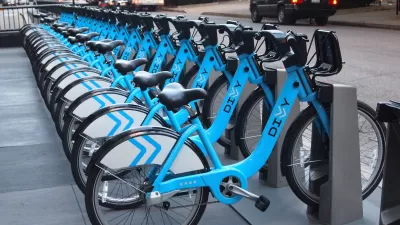As the Chicago bikeshare service extends to more area in the city, some of the stations are in less dense locations and get fewer riders. Thus, though Divvy's revenues have gone up, the income to the city from the program has gone down.

Chicago's Divvy Bikes program is getting bigger and now serves more people, but despite that investment less revenue is coming into the city.
One consistent criticism of Divvy has been a lack of investment in poor and minority neighborhoods. This year, Divvy has invested more in stations that get fewer rides or exist in less dense neighborhoods and that has meant both increased new construction costs and certain stations that get fewer rides. So, while overall rides have gone up, rides per station and overall income to the city have gone down.
"The city uses its Divvy income to pay for the Bicycling Ambassadors, a program that promotes safe biking and infrastructure such as painted bike lanes," Mary Wisniewski and Gregory Prat report for the Chicago Tribune. To continue supporting the Ambassador program at the rate it enjoyed last year, the city will have to find new sources of funding.
FULL STORY: Chicago sees drop in Divvy income following expansion into South, West sides

Planetizen Federal Action Tracker
A weekly monitor of how Trump’s orders and actions are impacting planners and planning in America.

Maui's Vacation Rental Debate Turns Ugly
Verbal attacks, misinformation campaigns and fistfights plague a high-stakes debate to convert thousands of vacation rentals into long-term housing.

San Francisco Suspends Traffic Calming Amidst Record Deaths
Citing “a challenging fiscal landscape,” the city will cease the program on the heels of 42 traffic deaths, including 24 pedestrians.

Amtrak Rolls Out New Orleans to Alabama “Mardi Gras” Train
The new service will operate morning and evening departures between Mobile and New Orleans.

The Subversive Car-Free Guide to Trump's Great American Road Trip
Car-free ways to access Chicagoland’s best tourist attractions.

San Antonio and Austin are Fusing Into one Massive Megaregion
The region spanning the two central Texas cities is growing fast, posing challenges for local infrastructure and water supplies.
Urban Design for Planners 1: Software Tools
This six-course series explores essential urban design concepts using open source software and equips planners with the tools they need to participate fully in the urban design process.
Planning for Universal Design
Learn the tools for implementing Universal Design in planning regulations.
Heyer Gruel & Associates PA
JM Goldson LLC
Custer County Colorado
City of Camden Redevelopment Agency
City of Astoria
Transportation Research & Education Center (TREC) at Portland State University
Jefferson Parish Government
Camden Redevelopment Agency
City of Claremont





























